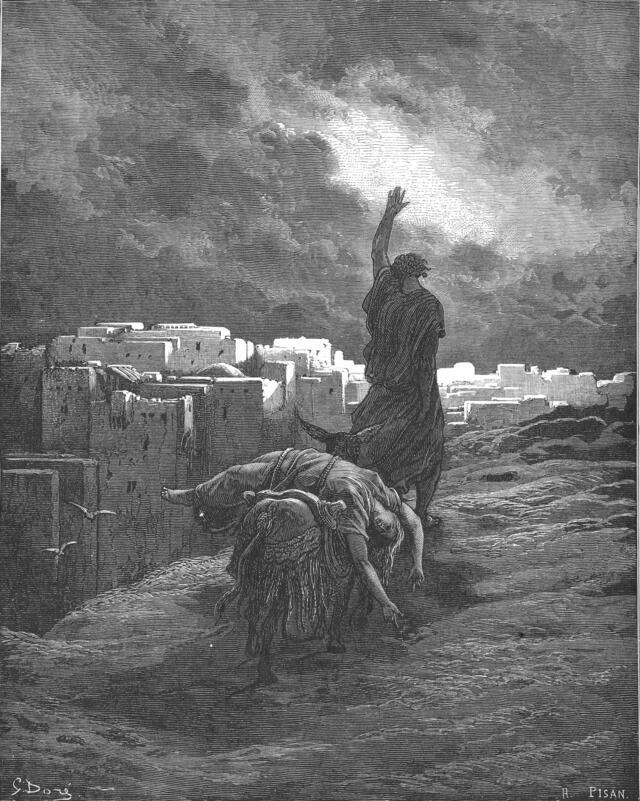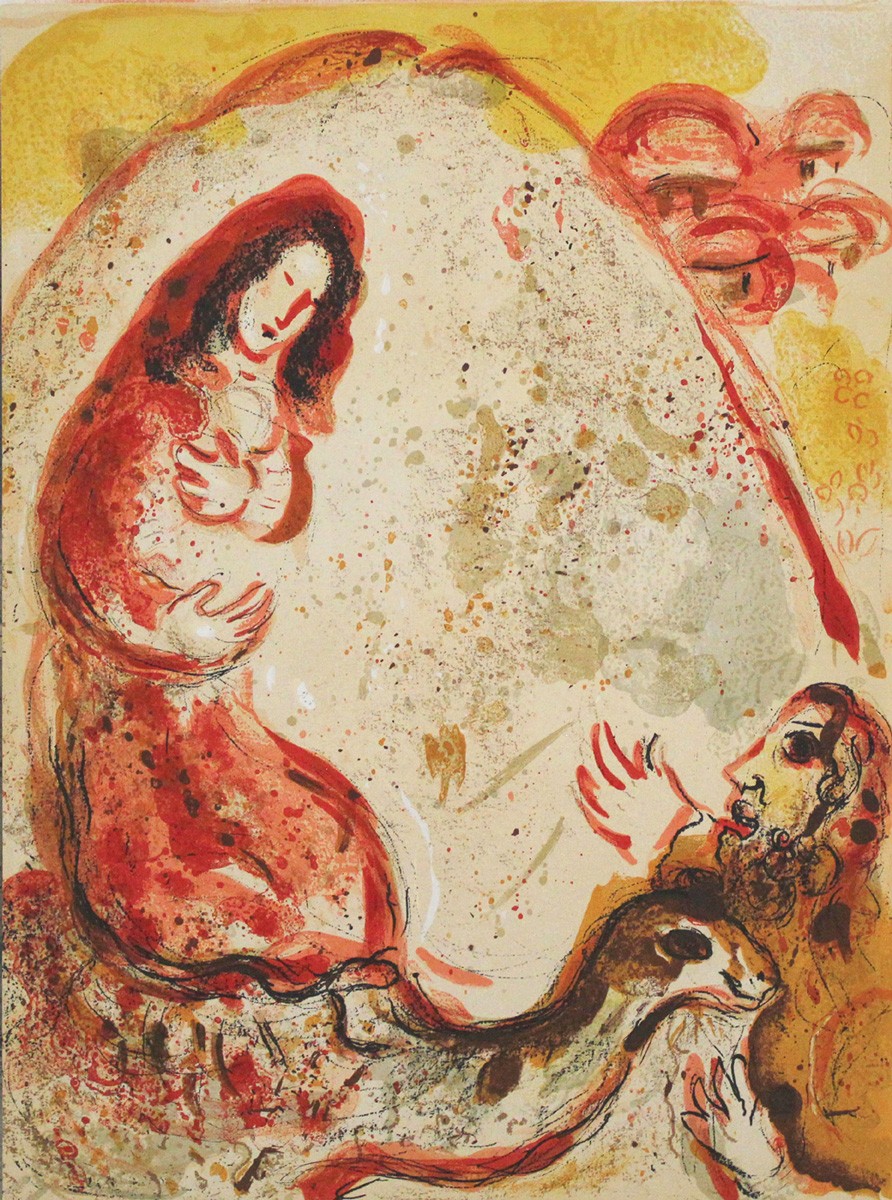As ironically humorous as we
may find the situation, it is appalling that children in the district’s 59
elementary schools and 17 junior high schools will not have access to the
western world’s greatest work of literary art. Knowledge of the Bible is not
simply a matter of religion. It is a vital key to understanding the visual arts, literature,
music, and drama.
It’s also important to acknowledge the truth in the parent’s
contention. The Bible has some of the most horrifying stories of sexual violence
ever put on paper. The story of the Gibean concubine in Judges gets my vote for
the most terrible, but the Biblical narrative also includes the rapes of Jacob’s
daughter Dinah and David’s daughter Tamar, the rape and forced child-bearing of
Abram and Sarai’s slave Hagar, the decision by Lot’s daughters to get their
father drunk and have sex with him, the human sacrifice of Jephthah’s daughter
(also in Judges).
 |
| Gustave Dore: The Levite Carries the Woman's Body Away |
Even some of the comic episodes, such as the story of the Mandrake root
involving the sister-wives Leah and Rachel, and the theft of Laban’s household
gods, which Rachel hides by placing them under the pillow on which she is seated
and then claiming that she is menstruating, are sexually charged.
 |
| March Chagall: Rachel Hides Her Father's Household Gods |
These are not
the stories we hear about in Sunday school – and I am willing to bet that many
cafeteria “Christians” are unfamiliar with them -- yet they are critical pieces
in the extraordinary tapestry of the Bible. Yet it is undeniable that, coupled
with Leviticus’ detailed inventory of proscribed sexual practices, these
Biblical stories could expose a child to a a thorough, if eccentric, education
in sexual practices and mores. That’s not surprising.
If there is a predominant
theme in the Hebrew Bible -- what Christians call the Old Testament – it is
God’s command in Chapter 1 of Genesis to, “Be fruitful and multiply, and
replenish the earth and subdue it.” God forms covenants with Adam and Eve, Noah,
Abraham and Sarah, and Moses in all of which He promises enormous fertility in
return for faith and good behavior. It would be far too simplistic to
characterize the Abrahamic religions as fertility cults, yet fertility is never
far from the center in the Biblical narrative. The complainant in Utah is not wrong in contending that the Bible is "sex-ridden."
To quote the anthropologist Mary Douglas, writing of Leviticus's many regulations about sexual matters:
"Religions which ritualize sex are usually more in favour of it than against. To suppose that the numerous sexual regulations of Leviticus exhibit a narrowly puritanical attitude to sex would be like expecting a culture with numerous food rules to condemn good food. It is where sex is recognized as a potent elemental force, at once the source of desire, fulfillment, and danger, that religion seeks to appropriate sex and to bind it with rules."
So what’s the answer for a school
district concerned with protecting children from sexually charged material?
Well, one good answer would certainly be to be less obsessed with children being
exposed to material with sexual content. The Utah case is a perfect illustration
on how that obsession can (and should) backfire. Another would be to understand
that children ask questions honestly when they encounter new ideas. Hiding
things from them and/or lying about their meaning is never a good idea. Honest discussion in the classroom with a well-informed, caring teacher could help to undo the damage that ill-informed and prejudiced parents and clerics can inflict.
The Bible ban in Utah's second-largest school district is in a Mormon community, but lest anyone feel comforted by that, it should be noted that another parent has challenged the Book of Mormon (the sacred text, not the musical) in Utah schools.
In my opinion, what is lost in banning the Bible -- and many other important works of art and literature -- far outweighs any the challenge of answering uncomfortable questions a child might ask.
While I
don’t believe that public education should ever embrace a single religious
doctrine (or sexual orientation), I believe that we owe our children exposure to
the world of ideas, and that emphatically includes religion. I believe in teaching religion
in public schools in the same spirit that we teach literature: Examine important
ideas that run through human culture, and look at the different ways that
religious traditions deal with them.
Allowing children to explore, especially a work as central to western culture as the Bible, gives students a license to inquire, something many parents seem to be afraid of, but which should be encouraged in any society.
We might actually end up with a generation
of students less ignorant about religion, sexuality and other sensitive subjects
than are today’s leaders.

No comments:
Post a Comment